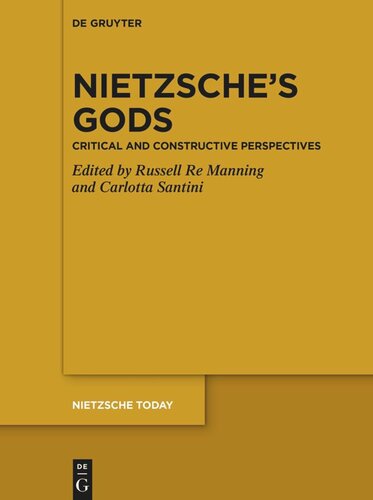

Most ebook files are in PDF format, so you can easily read them using various software such as Foxit Reader or directly on the Google Chrome browser.
Some ebook files are released by publishers in other formats such as .awz, .mobi, .epub, .fb2, etc. You may need to install specific software to read these formats on mobile/PC, such as Calibre.
Please read the tutorial at this link: https://ebookbell.com/faq
We offer FREE conversion to the popular formats you request; however, this may take some time. Therefore, right after payment, please email us, and we will try to provide the service as quickly as possible.
For some exceptional file formats or broken links (if any), please refrain from opening any disputes. Instead, email us first, and we will try to assist within a maximum of 6 hours.
EbookBell Team

5.0
88 reviewsThe place (or absence) of God in Nietzsche’s thought remains central and controversial. Nietzsche’s proclamation of 'the death of God' is one of the most famous (and parodied) slogans in modern philosophy, seeming to encapsulate the nineteenth-century loss of religious faith in the affirmation that God has "turned out to be our oldest lie" and yet the nature of Nietzsche’s own ‘theology’ is far from clear.
This volume engages with Nietzsche’s arguments about God, theology, and religion. The volume extends the discussion to an engagement of Nietzsche with alternative models of God, with ancient Greek religions, and with discussions of diversity (race, class, gender, sex) in dis/conjunction with religion.
The chapters examine Nietzsche’s genealogy of religion and his claims about the place of God and theology in the history of Western thought ("that faith of the Christians, which was also Plato’s faith"), as well as his engagements with alternative conceptions of God.
The volume also examines the historical and contemporary reception of Nietzsche’s arguments about God by religious and non-religious thinkers, asking to what extent Nietzsche’s philosophy of God speaks to the challenges of today's globalized philosophy and religion.